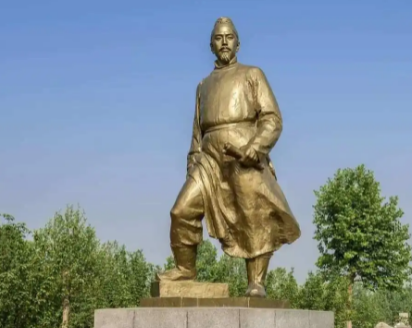In ancient China, besides names, "zi" was often used as another important identifier for individuals. For historical figures, their "zi" often contained rich cultural connotations and family expectations. This article will focus on Zhu Ju, a politician of the Eastern Wu Kingdom during the Three Kingdoms period, to explore his name and zi, as well as the stories and meanings behind these names.

Brief Biography of Zhu Ju Zhu Ju (194 AD - 252 AD) was an important official of the Eastern Wu Kingdom during the Three Kingdoms period. He served as the Minister of Rites and Grand Tutor, and was renowned for his talent and loyalty. Born in Wuxian, Wuju Prefecture (now Suzhou, Jiangsu), he was one of Sun Quan's important aides and made significant contributions in politics and military affairs. However, his life ended in tragedy, as he was falsely accused of treason and executed.
Names and Zis in Ancient China In ancient China, besides official names, scholars and gentlemen often had a "zi" given to them by themselves, teachers, or relatives and friends to express their personal character, aspirations, or status symbols. Zhu Ju's zi was "Zifan," which carried special cultural implications. The character "zi" was often used as a prefix in ancient times to show respect, as in the case of Confucius's zi, which was "Zi." The character "fan" means model or paradigm. Therefore, Zhu Ju's zi "Zifan" can be interpreted as "the son of a model" or "one who aspires to become a paradigm." This zi reflected Zhu Ju's personal qualities and moral standards he pursued, and also hinted at the role he played in life - a respected role model.
Cultural Significance of Names and Zis Zhu Ju's name and zi not only reflected his personal character and aspirations but also mirrored the cultural characteristics of the Three Kingdoms period. Naming and granting zis were important social cultural practices during this period, as they could showcase a person's family traditions, education, and even political stance. For example, Zhu Ju's zi "Zifan" demonstrated his profound cultural background and noble moral pursuits, which were consistent with his image in the Eastern Wu government.
Conclusion Exploring Zhu Ju's name and zi is not only a deeper understanding of a historical figure but also a profound excavation of the cultural traditions of the Three Kingdoms period. Zhu Ju's zi "Zifan" is not just a simple appellation; it encapsulates the expectations of society at that time for personal character, intelligence, and the pursuit of an ideal personality. By paying attention to these historical details, we can more vividly reconstruct the images of historical figures and understand their attitudes towards life and social values.
Disclaimer: The above content is sourced from the internet and the copyright belongs to the original author. If there is any infringement of your original copyright, please inform us and we will delete the relevant content as soon as possible.





























